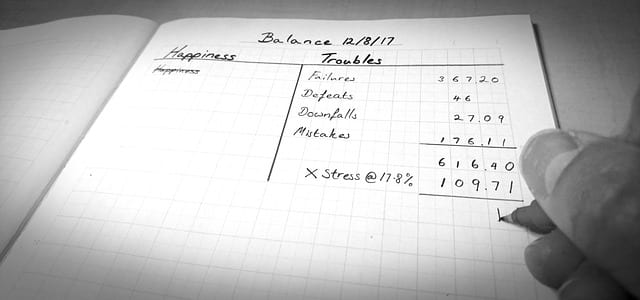It really doesn’t take much to make debts spiral out of control.
One accident that lands you in the hospital. One layoff at work. One automobile breakdown.
And when that happens, a lot of people go into panic mode and start making decisions that don’t serve them. Here are 7 actions to avoid when you’re in major debt trouble.
1. Taking out a home equity loan.
It seems to make plenty of sense, doesn’t it? You’ll eliminate all these clamoring, pesky payments and create a single easy lump sum you’ll send off every month. The phones will stop ringing and your anxiety may even temporarily decrease.
But that payment is probably going to be harder to handle than you think it is, even if it’s a little less than you’re paying now. And the moment you get into trouble, you’ll have a second lender coming after your house. You could end up defending your home from foreclosure where you might never have had to worry about it before.
Converting unsecured debt into secured debt is never a great idea.
See also: How to Deal with Collection Calls.
2. Going to Consumer Credit Counseling.
Many CCC agencies charge enormous monthly payments. Huge chunks of those payments go into their pockets. They then divvy up the scraps, making “micropayments” to your creditors that are sometimes worth just a few cents.
They will tell your creditors to deal with them and only with them, and you may even back them on that. Meanwhile, more aggressive creditors who are not in the mood to take $0.76 per month may move forward with a lawsuit. And you won’t even know about it until the papers arrive, because this agency is standing in your way.
There’s also what CCC does to your credit report. Many lenders look negatively upon it. Far more negatively than they’ll ever look on any bankruptcy.
If you want a payment plan, enter Chapter 13. At least then you’ll be protected by the automatic stay, and you won’t be throwing any money down the drain.
See also: What You Need to Know About the Automatic Stay.
3. Setting up payment plans with collection agencies.
We’re all so conditioned by the notion of “making payments” that the idea can sound sensible when the collectors suggest it. You may even feel relieved. Payments, you can do.
Of course, they will want to keep your credit card or checking account on file, and are happy to try again and again if the money isn’t there. They don’t care that your bank will charge you $34.00 every time they overdraw your account.
Some unscrupulous ones will “forget” there was a payment plan and they’ll just take the full amount. Getting that money back is next to impossible. You owed it, right?
Even if they don’t use any dirty tricks like reaching into your bank account for the entire balance, a collection company can also decide to stop working with you at any time. You don’t want to pay $7000 on a $14000 debt only for the creditor to decide to sue you midway through the process. It will be $7000 down the drain.
See also: When Collection Agents Call, Avoid These 7 Mistakes.
4. Attempting to settle debts here and there.
Debt settlement can be a big trap unless you have some sort of massive windfall that will let you settle all of your debts at once.
It will get one creditor off your back, at the expense of a black mark that will tank your credit score. Again, it will harm your credit far more than bankruptcy will, for a whole host of reasons that have a lot to do with the way the credit bureaus generate the score.
Settlement usually does not handle your overall debt problem, and all those other creditors are still waiting in the wings.
5. Using payday loans or more debts to move money around.
“Robbing Peter to pay Paul” is an age old tactic, and it never works. The last thing you need is more credit cards. Or a “rollover” loan at 400% interest.
You can’t solve debt problems with more debt. All you’re ever going to do is dig the hole deeper.
See also: The 5 Types of Debt You Should Avoid at All Costs.
6. Ignoring the problem.
Some people just enter a state of helpless despair. They stop reading their mail. They let it pile up. They quit answering their phone. They just sort of shrug and say, “I can’t do anything anyway.”
And for awhile this may even seem to work. They bother only with their routine, day-to-day expenses, and everything seems to calm down.
Then one day, the repo man shows up. Or the process server. And they enter panic mode yet again.
See also: Do I Have to Be Behind on My Bills to File for Bankruptcy?
7. Waiting too long to file for bankruptcy.
By the time you are having enough debt trouble to contemplate any of these solutions you are probably a good candidate for bankruptcy.
But a lot of people wait too long. Bankruptcy scares them. Bankruptcy feels immoral. A result? They end up spending a lot of money trying to placate creditors. When they finally do file bankruptcy all this money is lost. It hasn’t done them any good.
The faster you recognize you’re in over your head, the better.
Not sure? Take advantage of one of our free consultations. Unlike other solutions you might try, that one won’t cost you anything.





